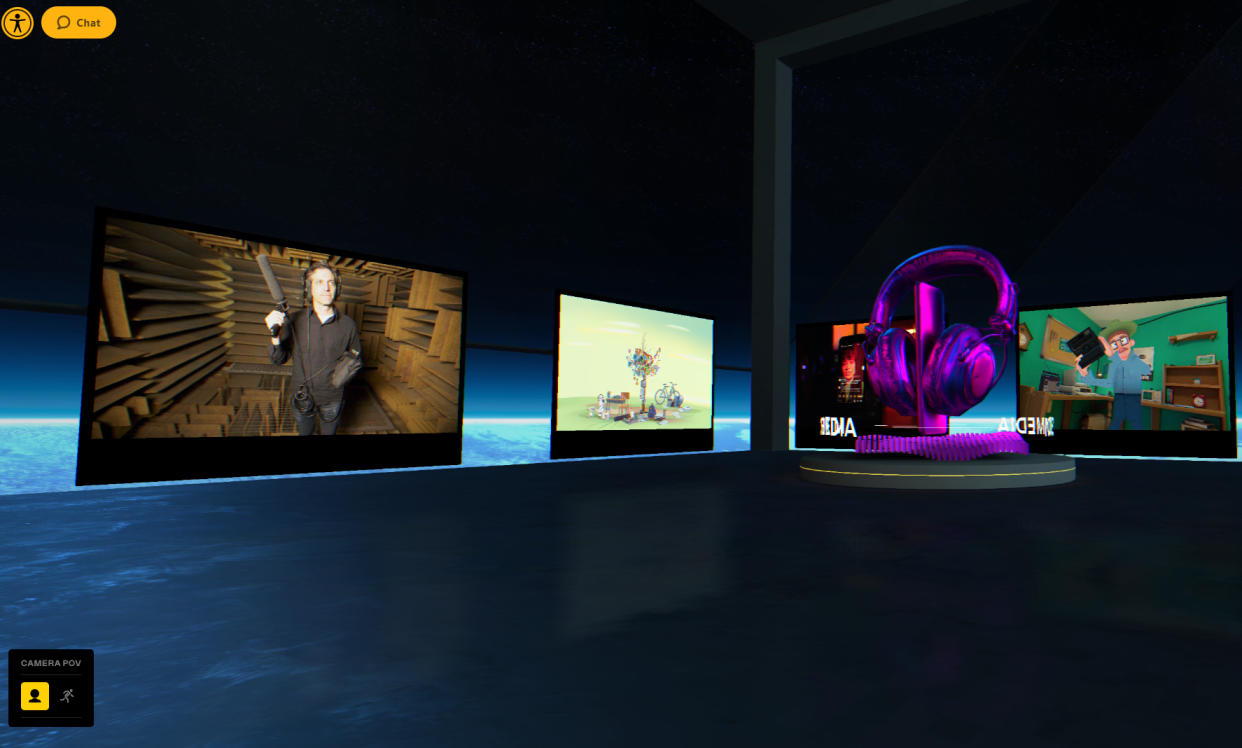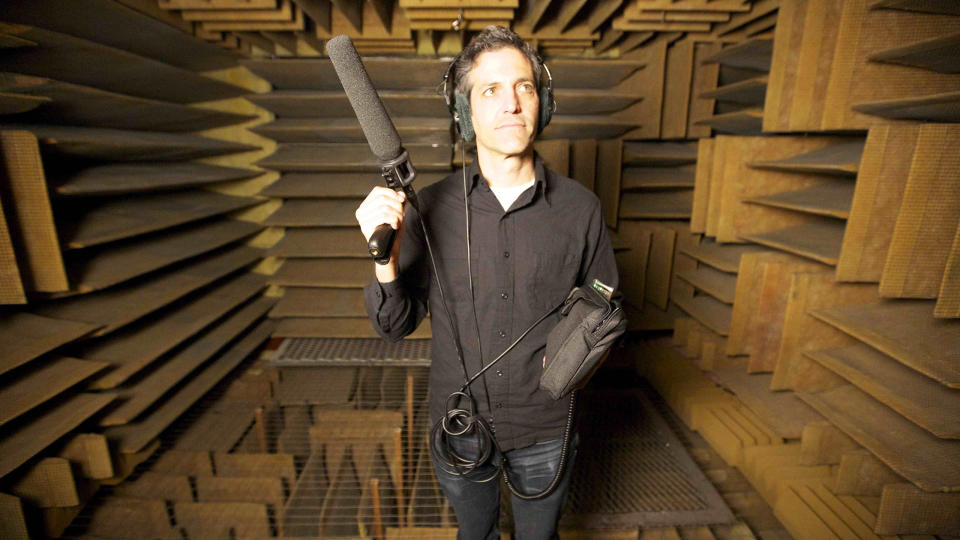Sundance Film Festival Cancels Plans for New Frontier Program in 2023

Sundance has canceled plans for its New Frontier program at the 2023 festival, the boundary-pushing section that has showcased experimental new works for 15 years. During that time, New Frontier anticipated industry-wide interest in the metaverse and other emerging technologies while catalyzing the curation of creativity in VR and AR at festivals around the world.
The 2023 festival also will not host its digital social space or the online venue known as The Spaceship, where badgeholders can interact as avatars and watch showcased works.
More from IndieWire
Martin Scorsese: Obsession Over Box Office Is 'Repulsive' and 'Insulting'
Sundance Sets Restorations of 'SLAM' and Gregg Araki's 'Doom Generation' for 2023 Fest
As the festival prepares to hold its first in-person edition in two years, New Frontier was never part of those in-person plans. Instead, the festival planned it as an exclusively virtual event and has been accepting submissions for months. In October, artists who submitted projects received a notice from New Frontier chief curator Shari Frilot informing them that they would be reimbursed for submission fees.
“We want to let you know that New Frontier is presently choosing to take time to reflect upon the rich learnings gained over the past two years as we evaluate the shifts in the media landscape to understand how best to serve our community of artists and our audiences,” Frilot wrote. “Accordingly, we will not offer an exhibition for this year’s Festival.”
The note, which also went to the New Frontier alumni community, suggested that the program would be reinvented. “We deeply appreciate your understanding and willingness to hold space for this period of reimagination,” Frilot wrote. “As always, we aim to continue to invest in, and engage with, our creative community, and we hope that you will be open to join us in discussion and collaboration during this period of incubation and reimagination.”
A Sundance representative said the backtracking is unrelated to budget cuts. Frilot, who had no further comment, has been traveling to other festivals in recent months to assess the emerging-media community. After establishing herself as a filmmaker in the early ’90s, Frilot joined Sundance in the early aughts and launched the New Frontier program at the festival in 2007. At that time, it was called “New Frontier on Main” and focused on digital installation work. Over time, it incorporated a range of works that include live performances and interactive experiences as well as virtual reality projects.
The 2012 presentation of new media artist Nonny de la Peña’s “Hunger in Los Angeles” inspired her intern, Palmer Lucky, to create a prototype for the Oculus Rift headset, which was eventually acquired by Facebook for $1 billion and laid the foundation for the future direction of the company, now called Meta. By 2016, New Frontier showcased more than 30 VR projects. It also launched the New Frontier lab program, which helped develop projects in new media from established filmmakers such as Roger Ross Williams and Josephine Decker. (The lab program was scuttled in 2021 amid other pandemic-related cutbacks.)
The industry impact of New Frontier programming led major technology companies such as Google and Intel to scout for talent at Sundance, not unlike the way agents discover emerging filmmakers. Nevertheless, Frilot told IndieWire in January that she was reticent to let the program become too commercialized.
“I’ve seen a lot of works and technologies being bought by companies,” she said. “Sometimes, that makes me sad. I’ve definitely seen filmmakers make their first feature and then they climb up and get chewed up in the studio system, and you see the same thing happening with New Frontier visions who create these miraculous innovations in storytelling. It turns them into workhorses.”
While it never generated as much media attention as the more familiar aspects of Sundance programming, New Frontier became a launchpad in its own right. Former filmmaker Chris Milk credited Frilot with validating his early VR work before he made a move into the product space and developed the highly profitable VR workout app Supernatural (Meta initially acquired the app for $400 million before the Federal Trade Commission blocked the deal in July).
Other New Frontier projects that found their footing include Joseph Gordon-Levitt’s hitRECord.org and several live interactive documentary works from celebrated filmmaker Sam Green, whose “32 Sounds” opened the section this year. “I feel like it’s in many ways the creative heart of the festival,” Green wrote IndieWire by email. “New Frontier definitely rose to the occasion the past two years — 2021 and 2022 — when the festival basically was New Frontiers!”

Sundance
Like others in the community, he heard from Frilot about the decision. “I totally support her in taking a pause before everything ‘goes back to normal,'” he wrote. “The world and the film landscape have changed profoundly, and I think what Shari wants to do is to take a couple of deep breaths and figure out what a post-pandemic New Frontiers should look like. I will miss it this year but am excited to see what it will become. … I’m sure whatever Shari dreams up as the next iteration of New Frontier will be dazzling and brilliant and vital.”
Projects that angled for a New Frontier launch may turn to some of the other new media programs at festivals like SXSW and Venice. Even Cannes has felt the effects of Sundance’s VR programming, as Alejandro G. Iñárritu’s VR work “Carne y Arena” (inspired in part by de la Peña’s work) premiered at Cannes in 2017. The festival’s Marché du Film launched Cannes XR in 2019, and its director, Guillaume Esmiol, took over planning for the entire Cannes market this year. All of those developments trace back to New Frontier.
While Meta CEO Mark Zuckerberg struggles to make his company a leading entity of the metaverse, New Frontier created a reliable space for the incubation of new technologies, regardless of how the business behaves.
The scuttling of the New Frontier virtual program falls in line with decisions by several major festivals to move away from exclusive online offerings. In addition to ending its 3D social hub and The Spaceship, Sundance will no longer host Zoom-based rooms created by the social platform OhYay; that company announced over the summer it would shut down at the end of the year.
Unlike festivals such as Toronto and New York, Sundance will maintain virtual access to its film program. While the bulk of the lineup will receive exclusive in-person screenings during the first weekend, the full competition program will be available online to badgeholders and ticket buyers starting January 24. At the 2021 festival, Sundance reported that viewership was nearly three times greater than it was at the 2020 physical edition, with 600,000 audience views across 50 U.S. states and 120 countries. In the past two years, a $50 Explorers pass provided attendees with access to New Frontier; in 2023, it will only provide online access to the shorts and episodic programs.
In January, VR filmmaker Lynette Wallworth spoke to IndieWire about the impact of New Frontier on her career after she was selected for a VR residency in 2016. “What Shari was trying to do was to bring artists together so we could continue a trajectory that might not otherwise exist,” she said. “It’s a continuing issue of this field, the diversity around who’s actually developing and experiencing the technology. That’s why I’m so wedded to Sundance in terms of what they support.”
Best of IndieWire
50 Directors' Favorite Horror Movies: Bong Joon Ho, Quentin Tarantino, Guillermo del Toro, and More
New Movies: Release Calendar for October 14, Plus Where to Watch the Latest Films
Martin Scorsese's Favorite Movies: 50 Films the Director Wants You to See
Sign up for Indiewire's Newsletter. For the latest news, follow us on Facebook, Twitter, and Instagram.

